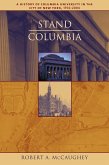As we approach the fiftieth anniversary of Brown v. Board of Education (1954), it is important to consider the historical struggles that led to this groundbreaking decision. Four years earlier in Texas, the Sweatt v. Painter decision allowed blacks access to the University of Texas’s law school for the first time. Amilcar Shabazz shows that the development of black higher education in Texas — which has historically had one of the largest state college and university systems in the South — played a pivotal role in the challenge to Jim Crow education. Shabazz begins with the creation of the Texas University Movement in the 1880s to lobby for equal access to the full range of graduate and professional education through a first-class university for African Americans. He traces the philosophical, legal, and grassroots components of the later campaign to open all Texas colleges and universities to black students, showing the complex range of strategies and the diversity of ideology and methodology on the part of black activists and intellectuals working to promote educational equality. Shabazz credits the efforts of blacks who fought for change by demanding better resources for segregated black colleges in the years before Brown, showing how crucial groundwork for nationwide desegregation was laid in the state of Texas.
Dieser Download kann aus rechtlichen Gründen nur mit Rechnungsadresse in A, D ausgeliefert werden.









